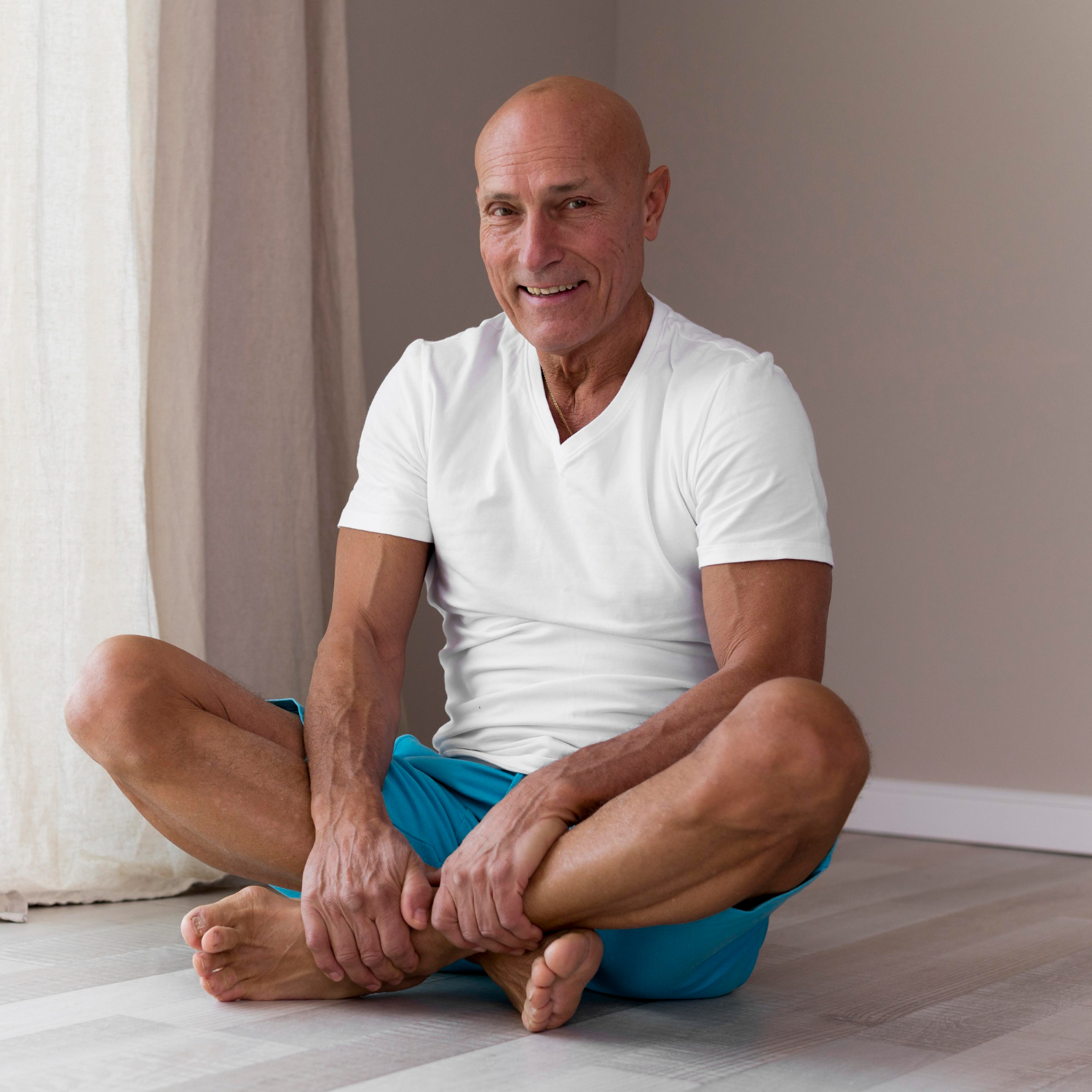


Understanding Testosterone and Hypogonadism
Testosterone is a hormone produced primarily in the testicles. It plays a critical role in the development and maintenance of male characteristics, including muscle mass, bone density, sex drive, and red blood cell production.
Hypogonadism is a condition where your sex glands (gonads) doesn’t produce enough testosterone. This can occur due to various factors, including aging, certain medical conditions, or testicular damage.
The Role of Testosterone Replacement Therapy (TRT)
At Hormone Hub, our Testosterone Therapy in FC Road, Pune aims to restore normal testosterone levels in men with hypogonadism. It’s important to emphasize that this therapy is not a fountain of youth or a performance enhancer. The primary purpose of TRT is to address the symptoms associated with testosterone deficiency and improve overall well-being.

At Hormone Hub, our Testosterone Therapy in FC Road, Pune aims to restore normal testosterone levels in men with hypogonadism. It’s important to emphasize that this therapy is not a fountain of youth or a performance enhancer. The primary purpose of TRT is to address the symptoms associated with testosterone deficiency and improve overall well-being.
Primary hypogonadism happens when something is wrong with your testicles that doesn’t allow them to make normal levels of testosterone.
Another name for primary hypogonadism is hypergonadotropic hypogonadism. In this type, your pituitary gland produces more luteinizing hormone (LH) and follicle-stimulating hormone (FSH) (known as gonadotropins) in response to low testosterone levels. The high levels of these hormones would normally tell your testicles to produce more testosterone and sperm. However, if you have damaged (most commonly related to prior chemotherapy) or missing testicles, they can’t respond to the increased levels of gonadotropins. As a result, your testicles make too little or no testosterone and sperm.
Sometimes in primary hypogonadism testosterone levels are within the normal range and gonadotropins are high. Your specialist will help you understand if you need treatment, even with normal testosterone levels.
Causes of Low Testosterone:
Congenital conditions that affect your testicles and can lead to primary hypogonadism include:


Common symptoms of hypogonadism that may improve with TRT:
Types of Testosterone Therapy
Several methods are available for delivering testosterone:
The choice of delivery method depends on factors such as patient preference, medical history, and desired treatment outcomes.
Benefits of TRT
Potential benefits:
Important Considerations


Regular monitoring is essential to ensure the safety and effectiveness of TRT. This typically involves:
TRT can be a valuable treatment option for men with confirmed hypogonadism.

The first thing that we do to make sure that you get the right treatment is by getting certain tests done which would mostly include but not limit to CBC, Thyroid panel, Hormone Assay, Testosterone levels, androgen assay, sugar levels, HbA1c, urine analysis, DHEA levels, Cortisol levels, Liver function tests, Lipid profile, Vitamin B12 and D levels, serum electrolytes, iron panel. Based on this, we take further treatment for testosterone deficiency. Further testosterone replenishment planned as per infusions or oral therapies.
At HormoneHub, we utilize “the Elixir therapy” which is a holistic and multidimensional approach to balance the physiological hormones, overcome deficiencies, restore innate harmony, energize, rejuvenate and there by sustaining long term well-being. Our specialists in each segment inculcate the methodologies and techniques which one can practice lifetime and ensure the sustenance on own thereby.


TRT is a treatment for men with confirmed low testosterone levels (hypogonadism). It involves administering synthetic testosterone to restore normal hormone levels.
A blood test to measure testosterone levels is typically used. Your doctor may also conduct a physical exam and review your medical history.
Potential benefits include improved sex drive, increased energy, enhanced mood, increased muscle mass, and improved bone density.
No, TRT is not suitable for everyone. Men with certain medical conditions, such as prostate cancer or sleep apnea, may not be candidates.
Maintaining a healthy weight, regular exercise, and a balanced diet can contribute to overall health and may positively impact testosterone levels.
Symptoms can include decreased sex drive, erectile dysfunction, fatigue, decreased muscle mass, mood changes, and reduced bone density. However, it’s essential to note that these symptoms can have other causes.
Common methods include injections, gels, patches, and pellets. The best method for you will depend on your preferences and medical condition.
Potential risks include cardiovascular problems, prostate issues, sleep apnea, blood clots, liver problems, and increased red blood cell count. It’s essential to weigh the potential benefits against the risks with your doctor.
It may take several weeks to notice improvements. However, individual responses vary.
Regular check-ups and blood tests are essential to monitor testosterone levels, overall health, and potential side effects. The frequency of visits will depend on your individual situation.

Please Note : The HHC holds sole discretion over decisions regarding the treatment plan, session time, package, and package duration. These determinations may differ among individuals with similar complaints and are subject to the patient’s clinical needs. The Management reserves the right to adjust a chosen package based on their clinical judgment, enabling them to modify its scope or duration according to the patient’s clinical requirements.